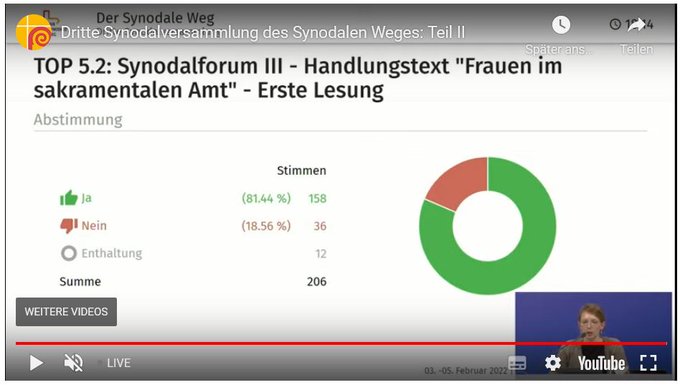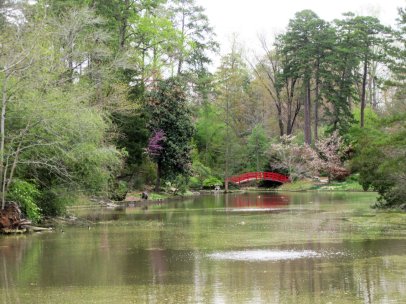I am not sure how to explain the feeling when convictions, you are holding deeply in yourself suddenly are voiced officially and formally in the church, you are serving since more than 30 years. It is not even a triumphant feeling – that would anyhow be much too early, looking at the universal Catholic Church – but it is a relief that thoughts, you were punished for, ideas which were forbidden to speak out lout (like the ordination of women priests under John-Paul II) are not any more only whispered in the dark corner of the church.
Participation of laity when it comes to the election of Bishops, gender equality within the church – and yes, it means all genders; ordination for women, celibacy as choice. A clear jump to overcome the Middle Ages and to arrive as the pilgrims finding their ways through the times into the 21st century.
Obviously we are not there yet, but knowing that German theology had always an impact and is indeed well reasoned and studied, there seems to be suddenly light at the end of a very dark tunnel. There will be now a forceful stand-off of those wanting to remain in the past. And there will be a decision to be made whether the universal Catholic Church allows for a synodal way forward which also strengthen the local churches and gives them the leverage to own decisions on certain levels; or whether the institution is imprisoned in the thought that all must do the same. Diversity in Unity would be the catchphrase; and the Orthodox Church gives us examples of this diverse unity based on baptism and creed.
While the dirty truth about child abuse continues to rage in the church, especially in the German church currently, it opens the view clearly on structural sins of power, male dominance and tons of “brothers in the fog” as the late Cardinal of Cologne described the priestly abusers he and others covered up. Many countries have gone through the discoveries of abuse and many churches in Africa have not even started to look deeply into their own backyards; the German church might be the one which later will be attributed the courage to name and shame the wounds and draw the necessary consequences.
There will be lots of oppositions within the church; there might be more splits and division, but this is part of the process of transformation. There will be the exposure of big gaps between different theologies and pastoral practices when it comes to Europe and Africa. We should not be afraid of all of this. The Catholic Church has waited too long to walk the talk about the values of participation, democratic rule, gender equality being advocated for others but internally rejected those values for their own institution.
Let’s be clear: this is not a German revolution. Think of the Amazon Synod, which also was thought-provoking in their requests. It is about taking seriously the sensus fidei , which was also highlighted in the German Synod text about the framework of its own reflections. It is about taking seriously the synodal church as envisioned by Vatican II; being somehow covered up and almost made forgotten in the times of Johannes-Paul II and Benedict XVI. In many ways, we now start to understand and try to explore the deeper sense of what was said in the sixties of the last century. And if Paul VI would not have forbidden certain discussions, the church would have moved certainly faster into the realities of the 21st century.
Another clarification: All discussions don’t touch on the essential of the good news: the unconditional love for all people, the promise of a meaning in life and the certainty that we are part of a much bigger and divine picture we constantly have to discover anew. The bible is full of stories of people exactly doing this: discovering that understanding and pictures of the divine changes, that the divine touches their lives in ways unexpected; the bible is a book of transformation from Abraham till Jesus. The “word of God” as it is liturgically often called, is not set in stone, but it is set in the hearts of a diversity of humans, we in the church call ‘the sons and daughters of God’. And the church as an institution and a living entity should encourage this living and developing connection between the world and divine. This can be scary at times for many, but diving in the deepest question of existing is not for the faint-hearted.
I often in this day’s think of the first apostles and specifically Peter, who had also to learn that the spirit of God showed him, that his understanding of how things should work, was thrown out of the window. Think of Acts 10:44-48, or think of what we call the first council in Jerusalem.
We live in exciting times for the church, we live in painful times too and in uncertain times. And exactly this uncertainty tends to support the motion to keep the known and to not jump into the unknown. I am convinced that we don’t have a chance but to move if we want to remain relevant as a church. We don’t have to move all in the same speed as a church and within the church, but we have to walk, sooner or later, to keep meaning to our message for this world. Otherwise, we will become a self-serving institution with no relevance for humanity.
Filed under: Catholic Church, General, Reflection, Religion and Ethics, Uncategorized, Acts10:44-48, bible, catholic church, Church Matters, German Catholic Church, Germany, Peter, synod, Synodal process, transformation








